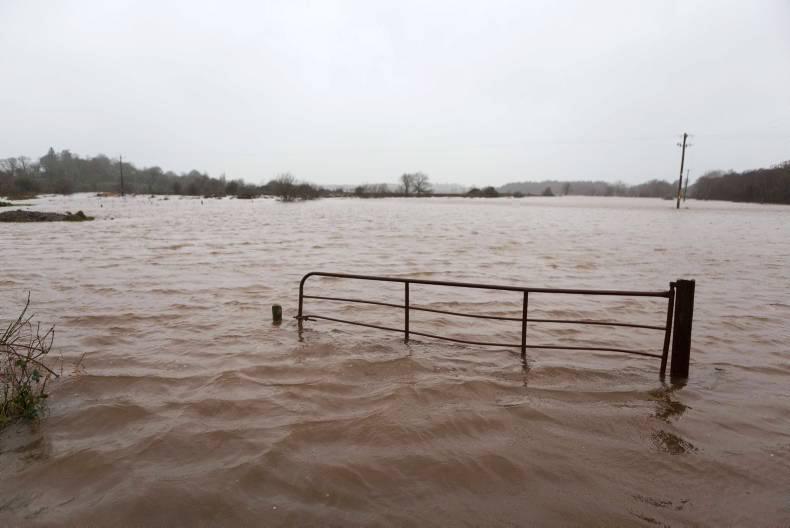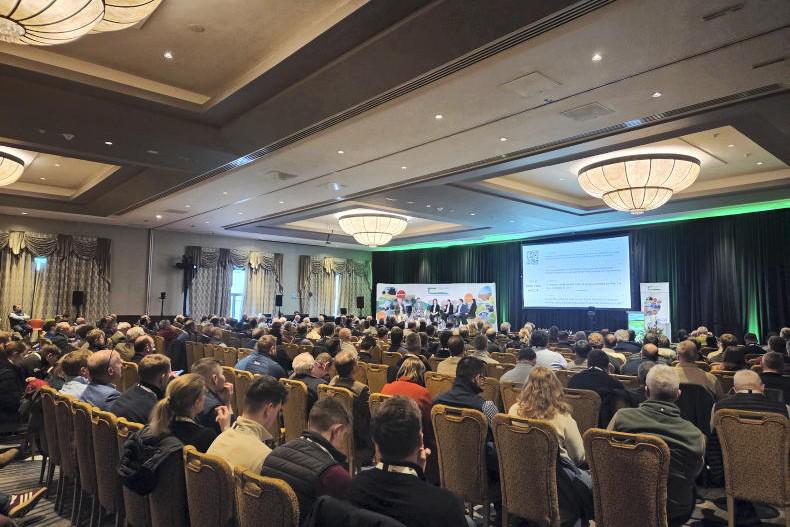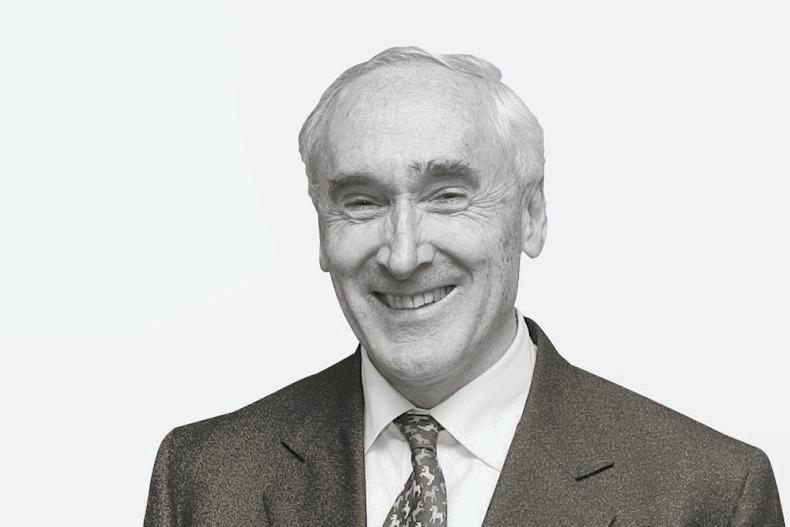After another night of negotiations, the French presidency of the Paris climate summit has pushed back the deadline for a final deal until Saturday.
The latest draft text shows agreement on the overall objective, which is to “hold the increase in the global average temperature to well below 2°C above pre-industrial levels and to pursue efforts to limit the temperature increase to 1.5°C”. The difference may not seem much, but countries with coastal areas at risk from rising sea levels insisted on having the 1.5°C target mentioned, while others rejected it as a binding target because of the massive additional effort it entails.
The provisional agreement also maintains the “fundamental priority of safeguarding food security and ending hunger”. New Zealand’s climate change minister Tim Groser said this was key in ensuring the agreement was implemented: “Food security will always trump,” he said. “People look after their immediate needs first.”
It is going to take longer to switch our agricultural system around
Yet there is still no direct mention of agriculture in the text, which leaves each country – and, in our case, the European Union – to find ways of achieving global targets across its economy.
Doubling farming output “not viable”
Green Party leader Eamon Ryan told RTE Radio 1 from Paris on Friday: “It means the government plan to double output, particularly in dairy and beef, is not viable.” While he acknowledged this was his own reading of the state of play in Paris, he added that he could not see how Ireland could opt out of the commitments being firmed up. “Yes, agriculture will be in a slightly different circumstance to other areas. Yes, we will do it first in the energy system, we will then do it in our transport system and our industry – it is going to take longer to switch our agricultural system around,” Ryan said.
The EU has already pledged to cut its overall greenhouse gas emissions by 40% below 1990 levels by 2030, with details for each country and each sector to be decided next year. One-third of Irish emissions come from agriculture, mostly from livestock.
“Improving efficiency” can deliver
Also in Paris, IFA Environment Committee chair Harold Kingston rejected Ryan’s interpretation, saying Ireland’s sustainable model of food production is supported to address increasing demand for emission-efficient dairy and beef produce. “Agriculture and food production will play its part and is looking at innovation and technology transfer to improve efficiency,” he said. This includes sharing best practices with farmers in developing countries, as funding to help poorer nations combat climate change remains a sticking point in the negotiations.
The World Farmers Organisation, of which the IFA is a member, is pushing for the final agreement to include an “acknowledgement of the multi-functional role of agriculture, as food, fuel and energy producers as well as protecting the environment”.
The draft text currently includes a vague reference to carbon “reservoirs and sinks”, which can be interpreted to include agriculture. A better outcome for farmers would be a clear rule to measure their efforts separately from those of other industries so that all countries can be compared fairly in the future.
“More flooding” without Paris deal
Meanwhile, flooding at home has been linked to the Paris talks, with the European Parliament’s representative to the conference, Seán Kelly MEP, warning that Ireland would be one of the worst-hit countries in Europe by such extreme weather event in the absence of a global agreement.
“The message is clear. If current global warming continues unabated, Ireland and the rest of the world will suffer from more flooding incidents. That is why we are here in Paris, pressing our global counterparts to compromise and agree on a deal,” Kelly said. “I believe a deal can be done to prevent this kind of nightmare future. Prevention is better than the cure.”
Read more
Full coverage: agriculture and climate change
After another night of negotiations, the French presidency of the Paris climate summit has pushed back the deadline for a final deal until Saturday.
The latest draft text shows agreement on the overall objective, which is to “hold the increase in the global average temperature to well below 2°C above pre-industrial levels and to pursue efforts to limit the temperature increase to 1.5°C”. The difference may not seem much, but countries with coastal areas at risk from rising sea levels insisted on having the 1.5°C target mentioned, while others rejected it as a binding target because of the massive additional effort it entails.
The provisional agreement also maintains the “fundamental priority of safeguarding food security and ending hunger”. New Zealand’s climate change minister Tim Groser said this was key in ensuring the agreement was implemented: “Food security will always trump,” he said. “People look after their immediate needs first.”
It is going to take longer to switch our agricultural system around
Yet there is still no direct mention of agriculture in the text, which leaves each country – and, in our case, the European Union – to find ways of achieving global targets across its economy.
Doubling farming output “not viable”
Green Party leader Eamon Ryan told RTE Radio 1 from Paris on Friday: “It means the government plan to double output, particularly in dairy and beef, is not viable.” While he acknowledged this was his own reading of the state of play in Paris, he added that he could not see how Ireland could opt out of the commitments being firmed up. “Yes, agriculture will be in a slightly different circumstance to other areas. Yes, we will do it first in the energy system, we will then do it in our transport system and our industry – it is going to take longer to switch our agricultural system around,” Ryan said.
The EU has already pledged to cut its overall greenhouse gas emissions by 40% below 1990 levels by 2030, with details for each country and each sector to be decided next year. One-third of Irish emissions come from agriculture, mostly from livestock.
“Improving efficiency” can deliver
Also in Paris, IFA Environment Committee chair Harold Kingston rejected Ryan’s interpretation, saying Ireland’s sustainable model of food production is supported to address increasing demand for emission-efficient dairy and beef produce. “Agriculture and food production will play its part and is looking at innovation and technology transfer to improve efficiency,” he said. This includes sharing best practices with farmers in developing countries, as funding to help poorer nations combat climate change remains a sticking point in the negotiations.
The World Farmers Organisation, of which the IFA is a member, is pushing for the final agreement to include an “acknowledgement of the multi-functional role of agriculture, as food, fuel and energy producers as well as protecting the environment”.
The draft text currently includes a vague reference to carbon “reservoirs and sinks”, which can be interpreted to include agriculture. A better outcome for farmers would be a clear rule to measure their efforts separately from those of other industries so that all countries can be compared fairly in the future.
“More flooding” without Paris deal
Meanwhile, flooding at home has been linked to the Paris talks, with the European Parliament’s representative to the conference, Seán Kelly MEP, warning that Ireland would be one of the worst-hit countries in Europe by such extreme weather event in the absence of a global agreement.
“The message is clear. If current global warming continues unabated, Ireland and the rest of the world will suffer from more flooding incidents. That is why we are here in Paris, pressing our global counterparts to compromise and agree on a deal,” Kelly said. “I believe a deal can be done to prevent this kind of nightmare future. Prevention is better than the cure.”
Read more
Full coverage: agriculture and climate change










SHARING OPTIONS